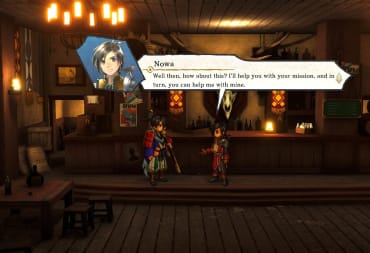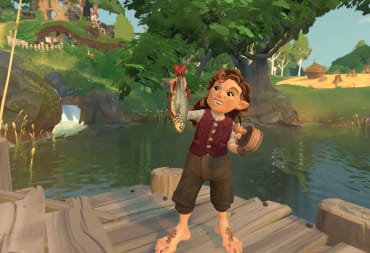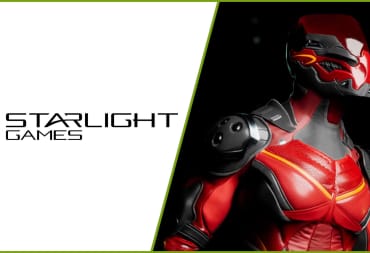Often portrayed as clever rogues, anti-heroes are loved primarily in the way they conduct themselves when compared to other strangers. Typically, it is easy to say anyone who does not follow the clichéd codes of a righteous, forthright protagonist is considered an anti-hero, and fiction and pop culture is rife with many good and bad examples to cite. Strangely enough, though, we see few true anti-heroes in video gaming that actually adhere to the more classical hallmarks of the archetype. The choice of being ambivalent to the world, the desire for something that is self-preserving even in the face of being called a hero, is what sets apart true anti-heroic characters in fiction. It is easy to say a character is an anti-hero due to their ambiguity or amorality, but what about their motivation?
Motivation is a strong indicator for this trait, and it can be easily explored in the hands of a great character such as Garrett from the acclaimed Thief series. For those who have never played it before, the Thief series started as a trio of computer games by Looking Glass Studios, which was at one point chock-full of talented game designers, such as Ken Levine, Warren Spector, and Doug Church. Some of their better-known titles include the System Shock games and Ultima Underworld, which were best sellers and are often considered some of the best computer games ever made. Thief is no exception. Despite being a late 1990s PC-oriented title, the Thief series is often lauded for its clever use of stealth in gameplay. So successful was the model that even today many critics consider the Thief series to be the best implementation of stealth mechanics in a game.
In the series, the protagonist Garrett is an orphan who, while starving for some food, tried to pickpocket a Keeper named Artemus. In the Thief world, the Keepers are a secret service of sorts, protectors that observe the world and try to maintain balance from two warring factions in the great city the game takes place in: the chaos-loving, tree hugging Pagans, and the technocratic, overzealous Hammerites. Garrett himself was also a former Keeper after being caught by Artemus, trained to be in the shadows unnoticed by those around him, acting swiftly and silently against their enemies. He left the order to go into business for himself as a master thief, and over the course of several games becomes embroiled in several plots that involve all three factions in some form or another.
https://www.youtube.com/watch?v=28sQGe5BfiA
Garrett spends most of the games stealing stuff for rich clients and getting paid handsomely for it. His skills are unparalleled in the city, and his infamy is well-known by the factions. Naturally, in the first game he becomes unwittingly involved with an elaborate scheme by the Pagans to bring about some old god into the world. He even loses his eye from the Trickster Constantine and his henchwoman Viktoria in a plot to turn all undead with dark magic. He would eventually get revenge against Constantine by replacing a magical artifact with a fake that would kill the trickster during the summoning ritual. Garrett, in the second game, becomes embroiled in another conflict, this time against a branch off of the Hammerites, the Mechanists. He also becomes involved platonically with Viktoria and the Pagans, fighting against the Mechanists as they plot pretty much the same takeover as the Pagans, only using technology and big brother tactics over magic and the undead.
Now that is the plot of the first two games over-simplified, but the point to provide context for how Garrett fits in both. Unlike other games where the player would be forced to pick a side to fight for, Garrett has no allegiance to anyone, nor does he truly care about the goals of each faction. Both factions have demonstrated their desire for domination, and both attempted to manipulate Garrett as a puppet to achieve their goals. The factions’ schemes force Garrett to retaliate against them, all the while he remains neutral to a point, so the factions actually do not matter, as the allegiance Garrett has with them both is only temporary.
Garrett himself is a cynic; a man who pretty much sees the audacity of each situation he becomes embroiled in and laughs at it from his podium. He knows what he is as well; he values true independence and enjoys pilfering baubles and loved ones for his clients. He trades jobs for favors and uses his coin to upgrade his own equipment. Just like any self-made businessman, he is professional in what he does, and the gameplay reflects this through the emphasis on stealth over actually killing enemies, since unnecessary murder is bad for business. This is also a character trait as it shows Garrett’s own ethical code; he is a rebel without a cause but is wise enough to not rock the boat of power to keep his client list intact.
Garrett actually personifies a number of traits found in literature characters, namely Byronic heroes. A Byronic hero is a subset of anti-heroes that are often tragic figures in fiction and literature. The term was coined through the works of author Lord Byron and characterizes an anti-hero that includes, but is not limited to, a jaded view of the world coupled with cynical, cunning intelligence and being above the law in some capacity. While any of these can be a red flag for any psychological study, Garrett personifies most of these traits, specifically his cynicism, intellect, and adaptability in any situation. His self-preservation attitude is not because of some troubled past, but really it’s because he works best alone. He chooses to be a loner so it can benefit himself, not because of others, and that is an important distinction that sets him apart from other anti-heroes.
https://www.youtube.com/watch?v=kWFeC13aZzM
We see this purposeful isolation in how he interacts with characters in the Thief world. Garrett has very few allies in the games, with the only two of note being the sprite Viktoria and his former mentor Artemus. Viktoria gets more of a presence in the Thief games because of her recurring role and plot device against Garrett, namely payback. Viktoria was the one person that Garrett had a personal vendetta against, as she was the one who stole his eye for the Trickster. He achieved vengeance against Constantine for the betrayal, and after the crisis with the Mechanists, it was fitting for him to join the Pagans out of self-preservation. It was Viktoria, however, who convinced Garrett that even he needed to receive aid against a common foe, putting aside their differences for a higher cause. He even grew to admire and respect Viktoria as a friend and comrade, something that Garrett rarely does in the whole series.
These traits are what rogues and anti-heroes have personified in stories for centuries. Garrett, as a Byronic hero, is designed to be cool as a character; he is self-aware of how the world works, and the world is one of conflict and turmoil. It ultimately doesn’t matter which faction wins in Thief to Garrett, what matters is how he can continue his line of work in the future.
Take someone like Kratos from the first God of War game as a comparison. While a fascinating character in his own right, the reason for it is not because of his proposed status as an anti-hero. He has been considered one because he is the protagonist who does nefarious things to achieve his own goals, murdering and killing everything wantonly not-withstanding. What about Kratos, however, makes him a true anti-hero? Yes, he is cynical and arrogant, but it is mostly out of emotions put forth by the actions of others and not a choice of his own.
Kratos is essentially dealing with anger and has only one seething desire: to pretty much kill every last God in Greek mythology in a self-preservation tactic to prevent the hand fate gave to him, coupled with vengeance for every deity on Mount Olympus betraying him. His character is defined by the actions of others over himself; it does not make his character truly sympathetic or compassionate, even in the few moments where Kratos shows humility. In short, Kratos is not an anti-hero, but a tragic one, throwing his choices out the window and making those few moments of compassion not character development, but out of character moments that clash with Kratos’ purpose.
Garrett, in contrast, is more evenly defined in line with such traits. He is not out to kill or cause destruction on a quest for revenge, nor is he fueled primarily by emotion. Most of the time it’s just to get paid and eat something like any working man. True, revenge is a motivation against some characters who physically harmed him, but his whole being is not to focus on that when other, more pressing matters are at hand. To Garrett, the coins he can earn are more important than the throats he can slit; if he fulfills his vengeance as a byproduct, even if it’s an act of humiliation against those who wronged him, he is content with that.
https://www.youtube.com/watch?v=dGlCjLfpugY
Garrett is thrown into these situations against his will and is usually forced to become involved because of the squabbling factions, ignoring details by his choice for most of the games. The best example of this is at the end of the first game, where he walks away from even the Keepers warning that he is needed to keep balance of the world. Garrett snidely replies he is through with heroics, establishing his independence, releasing old grudges—minus the exception with Viktoria—, cuts his ties with the factions he worked with, and goes back to what he does best—being a professional thief.
Garrett simply wants nothing to do with saving the world, but as it was seen in the Thief games, he has no choice in the matter. Garrett will not stop fighting against the currents, even if he is resigned to this fate of saving the world as we see in the ending of Thief 2. Byronic heroes never stray from this path, and Garrett works best with his singular, insularly role in mind.
One story trope hinted in the game, though, is that of a reluctant hero. When done right, the reluctant hero as a character arc is a legitimate way to show growth in a character. Take Han Solo in Star Wars, for example, sees his arc being the smuggler who becomes a respected general to lead the rebellion, and learns to care for others. Garrett was thrown on this path in the ending of Thief: Deadly Shadows. We see Garrett being pickpocketed by a street urchin in a similar manner that he himself did to Artemus when he was a youth. He quickly takes the child under his wing, echoing the same phrase said to him years earlier. The ending of Deadly Shadows implied that perhaps Garrett would undergo a major character change, perhaps shedding his Byronic roots and, in his own way, transform into a less cynical hero, but sadly the transition between games was too jarring for Garrett as a character, making the path of a reluctant hero fall flat in Thief 4.
While Thief 4 is much maligned for numerous gameplay and story changes, it focuses on this aspect of the dynamic between Garrett and the orphan girl, Erin. The problem with Thief 4, at least from a narrative perspective, is how Garrett changes his own code of ethics; he is forced to pair up with Erin, who has become an assassin-for-hire, due to plot contrivances and rather poor writing. The character shift in Garrett himself is the most notable and goes against many of the Byronic traits seen in the previous games by Looking Glass Studios.
https://www.youtube.com/watch?v=44ILjAyZn1E
It is this version of Thief, Garrett goes through a character arc that is more in-tune with what gaming considers an anti-hero: a sort of bad guy doing good mentality because of a sentimental motivation, over a practical one. Garrett in Thief 4 is not concerned about paying for his next meal, in fact it rarely, if ever, comes up as a obstacle to Garrett's thought process. Garrett in Thief 4 is concerned about Erin and her ties to the main plot- the thing that the writers of Thief 4 want to focus on. This makes him more heroic when he is not a full-fledged hero, saving the city from a plague called The Gloom this time and uncovering why Erin was used in a ritual that infused her with The Primal, a sort of powerful energy that is considered the essence of The City the game takes place in.
It is somewhat indulgent to ask Garrett to remain a Byronic hero, but he is memorable because of these qualities. His character shift was so drastic, and based more on story mechanics versus personal introspection, it lost a lot of the luster of what made Garrett memorable in the first place. Thief 4 being a linear experience is not necessarily the problem, Thief 4 providing a linear storyline where Garrett is fully tied to everything that happens by happenstance is. Perhaps with tighter writing or a slower burn into the main plot would have made Garrett seem like more of a natural progression, over a jarring one. It can be a good character arc if done correctly, seeing Garrett shed his jaded cynicism and embracing destiny laid before him, but it is inescapable how much of a misstep the character shift is for the series.
Regardless of these changes, Garrett remains one of gaming’s few, true anti-heroes. I posed the question earlier: what about their motivation? In the purest form, a good anti-hero has a self-serving motivation to them, one not shackled by revenge, rage, or avarice. These traits are what make them roguish, for sure, along with their skirting of authority, but acknowledging these traits while similarly ignoring them are what make true anti-heroes shine. Garrett has no illusions or moments of pure introspection in the first three games as to what he is—he is simply a thief. His motivation is simple, his desire for the status quo equally simple, and his character, already aware of how inconsequential these factions are, is self-motivated in a way that is rarely seen in video games.
I hope you guys enjoyed this episode of Character Select. If you have any questions or comments, please leave them below or contact me on Twitter @LinksOcarina. See you next time.
Have a tip, or want to point out something we missed? Leave a Comment or e-mail us at tips@techraptor.net





